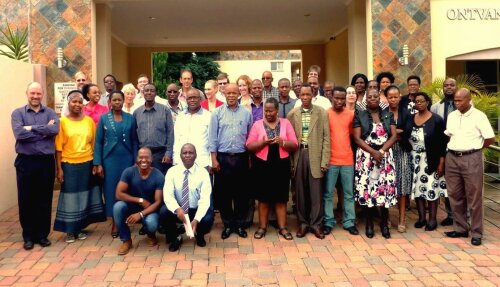| Key focus | Management of chronic diseases |
|---|---|
| Objectives |
|
While South Africa continues to deal with the challenge of infectious diseases and child malnutrition, changes in socio-economic status and lifestyle behaviors have led to an increased prevalence of non communicable chronic diseases such as cardiovascular diseases, diabetes, cancer and chronic pulmonary diseases. South Africa is facing the complex challenge of shifting from an acute care model to a chronic care model, in both rural and urban areas.
The University of Limpopo has run the Dikgale Health and Demographic Surveillance System (HDSS), a well-documented field laboratory on rural health trends, since 1995. The accumulating annual statistics, determined by comprehensive health surveys that collate births, deaths and in and out migrations, with the prevalence of chronic diseases, feed into national and international statistics, and are providing a useful basis for other health and behavioural research. A cross-sectional study in the Dikgale HDSS site, a rural area in South Africa with a total population of approximately 36.000, indicated that the population has developed significant levels of chronic disease risk factors, despite living in an area under poor socio-economic circumstances. The overall prevalence of hypertension, high fasting blood glucose and obesity have respectively risen to 38%, 10% and 41%. This already resulted in a dramatic increase of strokes.
In the framework of our VLIR-UOS funded Interuniversity collaboration, the Global Health Unit and the Department of Primary and Interdisciplinary Care joins forces with the University of Limpopo in South Africa to address this problem. The ‘Dikgale Chronic Diseases Intervention Project’ is a community based intervention project to prevent, control and manage chronic diseases in this rural community. It includes community based health promotion and health prevention programs, and also aims to strengthen the local primary health care system.
Conceptual Workshop February 2014
A Workshop with all stakeholders as the community representatives and health care providers took place in Polokwane from 10 to 12 February 2014. Qualitative and quantitative data, available resources, policies, etc. were discussed. Discussions resulted in a description of an integrated community-based intervention program transforming the acute care model to a chronic care model. A major task shifting towards the community and involving the informal sector will be needed to succeed.
